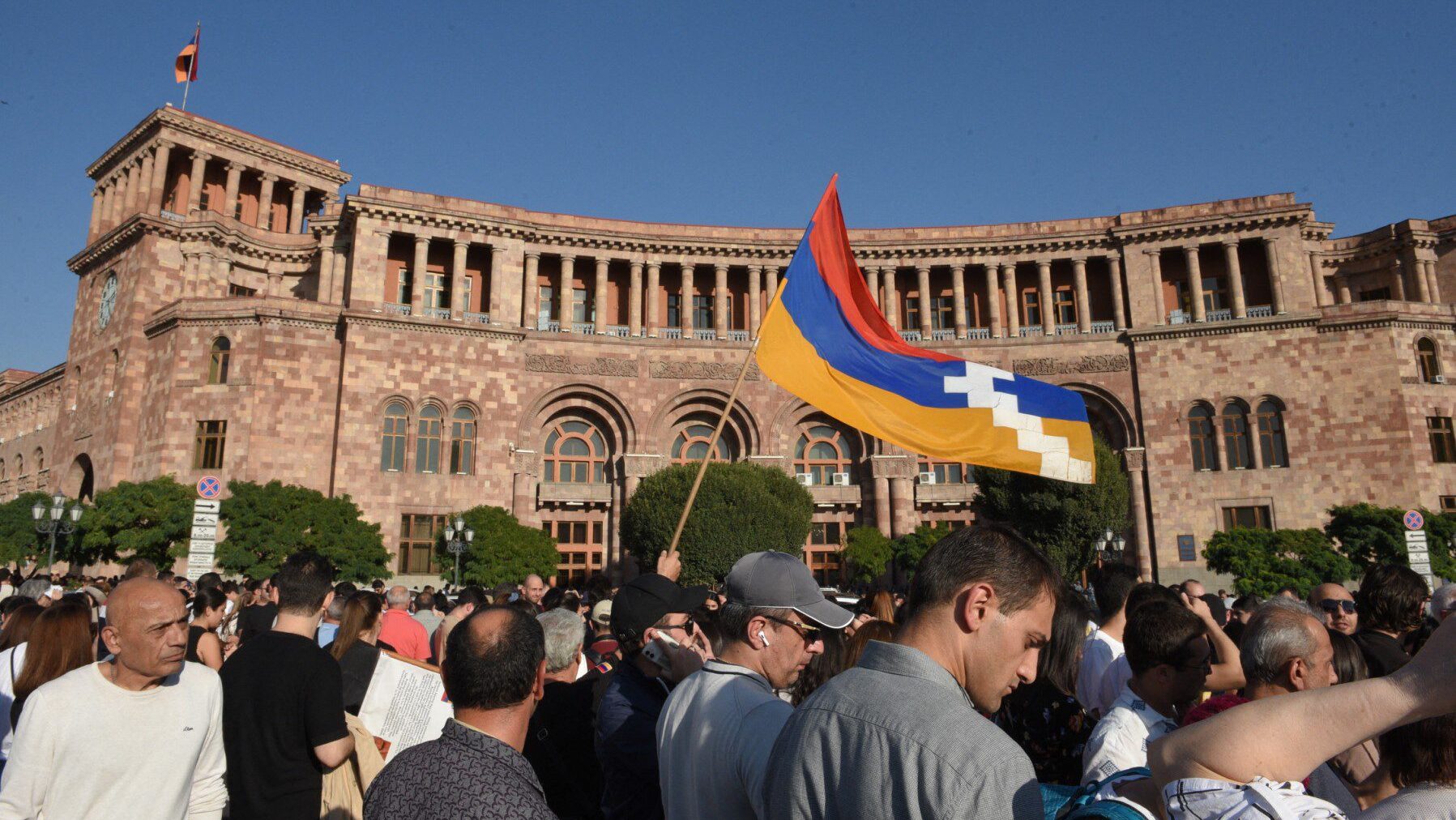
Armenians protest to urge the government to respond to the Azerbaijani military operation launched against the breakaway Nagorno-Karabakh region outside the government building in central Yerevan on September 19, 2023.
Photo: Photo by Karen MINASYAN / AFP
Turkish-backed Azerbaijan has again launched a major new military campaign in the Christian Armenian enclave of Nagorno-Karabakh, three years after the previous war which saw thousands die, demanding the capitulation of its Armenian adversary in the region disputed for a decade, and initiating a crisis that risks spiraling into all-out war.
So far, the military operation, which Azerbaijan’s defense ministry is calling an ‘anti-terror’ operation, has resulted in the deaths of 25 Armenians, including two civilians, and injured 80 others on the Armenian side, according to an announcement made by local Armenian authorities in the enclave on Tuesday evening, September, 19th.
Baku, which blamed the outbreak of violence on the deaths of six people at the hands of Armenian ‘separatists,’ has stated that a ceasefire and negotiations are contingent upon the enclave’s unconditional surrender.
“The illegal Armenian armed forces must raise the white flag, surrender all weapons and the illegal regime must dissolve. Otherwise, anti-terrorist operations will continue until the end,” Azerbaijan’s foreign ministry said.
The Azerbaijani defense ministry said Russian peacekeepers, who’ve been stationed in Nagorno-Karabakh since the outbreak of violence between the two countries in 2020, have been informed about the operation.
In the 2020 conflict, Azerbaijan acquired control over large swaths of Nagorno-Karabakh with the help of Turkish-supplied drones.
The Azerbaijani side reported that one civilian died by shrapnel, while Armenians have alleged that several Nagorno-Karabakh towns, including the capital of Stepanakert, have been targeted by “intensive fire” and heavy “artillery bombardment” which has struck civilian infrastructure.
“Recently, the Azerbaijani side has been carrying out daily troop transfers and stockpiling of various weapons, which were accompanied by intensive information and propaganda activities, preparing the ground for large-scale aggression against Artsakh,” the Foreign Ministry of Artsakh—the name used by Armenians to refer to Nagorno-Karabakh—said in a statement.
Azerbaijan’s defense ministry, for its part, claimed its current operation is expressly targeting military infrastructure with “high precision weapons” so as to “restore the constitutional order of the Republic of Azerbaijan.” It said it had established “humanitarian corridors” to facilitate the evacuation of civilians from the warzone.
The Russian Federation, a powerbroker in the region, has called for an end to the fighting, with Kremlin spokesman Dmitry Peskov announcing that Moscow had reached out to both parties, calling for the resumption of negotiations. Russia’s defense ministry stated that its peacekeeping forces had initiated the evacuation of civilians from the ethnic Armenian region.
“During the day, 469 people, including 185 children, were evacuated to the location of the Russian peacekeeping contingent,” the defense ministry said in a statement.
Turkey, another power broker in the region, has expressed firm support for Azerbaijan’s actions, with Turkish President Recep Tayyip Erdogan telling those gathered at the UN General Assembly on Tuesday that Baku was well within its right to take “steps to preserve its territorial integrity.”
“Nagorno-Karabakh is Azerbaijani territory,” Erdogan said. He told the UN that any other status of the disputed territory “will never be accepted.”
